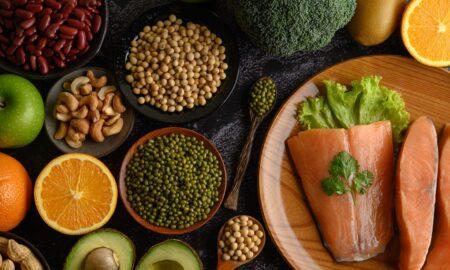Perhaps one of the coolest pieces of information to issue from the halls of science is nutrient timing. We know now that it’s critically important that you take in nutrients immediately after training. You might say your muscles are more sensitive than your girlfriend at a chick flick.
Right after you do five sets of five reps on squats, stiff-legged deadlifts, leg extensions, calf raises and walking lunges, your quads, hams, glutes and calves are screaming for nutrients. It’s the proverbial Miller time for the torn and energy-depleted fibers in those muscles.
So you’ve probably heard that you need to suck down carbohydrates and protein right after training. True, but you’ve probably also heard that there’s an optimum ratio of carbs to protein for achieving postworkout anabolism. On that point the science becomes muddled, yet clear. As Ricky Ricardo would say, ‘Lemme esplain.’
If you go through the literature, you’ll find evidence that a ratio of three or four parts carbohydrate to one part protein seems to work well with regard to muscle glycogen replenishment and endurance exercise performance. For example, one study compared the following formulas that athletes used immediately and two hours postexercise:
Group 1: carb-pro-fat (80 grams carb, 28 grams protein, 6 grams fat)
Group 2: carb-fat (108 grams carb, 6 grams fat)
Group 3: carb-fat (80 grams carb, 6 grams fat)
After four hours of recovery the researchers found that the carb-protein-fat group (group 1) had gained the greatest amount of muscle glycogen. Interestingly, there weren’t any differences in plasma insulin for any of the groups even though plasma glucose was lowest in the carb-protein-fat group. So like carbohydrates, protein is a potent stimulus for insulin action (and you know insulin is very much an anabolic hormone). Another study found that time to exhaustion was 55 percent greater in the carb-protein group than in a group that got carbs alone; the amount of muscle glycogen stored was 128 percent greater. The ratio here was closer to 4-to-1. Case closed’taking more carbs than protein right after exercise is better, right? Hold on to your long underwear. Here’s where the story gets interesting.
Other studies have actually found that a ratio of 0.7-to-1 (carbs to protein) works wonderfully well. Yes, my friend, that’s more protein than carbs. For example, older men who got a protein supplement (10 grams protein, seven grams carbohydrate, three grams fat) immediately after training (12-week resistance-training program; three workouts per week) realized much better gains in strength, muscle fiber size and lean body mass than the group that took the supplement two hours after training. Another study found that ‘early postexercise ingestion of a nutrient supplement enhances accretion of whole-body and leg protein, suggesting a common mechanism of exercise-induced insulin action.’
Hot off the scientific press is a study built around intake of 10 grams of casein protein, eight grams of corn sugar and three grams of milk fat. The scientists randomly assigned 387 male U.S. Marine Corps recruits (Parris Island, South Carolina) to groups getting a placebo (zero carbs, protein and fat), a control formula (eight grams carbs, zero protein, three grams fat) or a protein supplement (10 grams casein protein, eight grams corn sugar and three grams milk fat). They took the supplements immediately after exercise during 54 days of basic training. I don’t need to remind you that Marine basic training isn’t a walk in the park; those guys work their tails off!
The protein-supplemented group made out a lot better than the other groups:
’33 percent fewer total medical visits
’28 percent fewer visits due to bacterial/viral infections
’37 percent fewer visits due to muscle/joint problems
’83 percent fewer visits due to heat exhaustion
‘Reduced muscle soreness
The protein supplement also tended to have an anticatabolic effect, suggesting that a higher total dose of protein (especially the essential amino acids) could be helpful. So in this and several other studies, taking in more protein than carbs is just as effective as a postexercise carbs-dominant combo.
Is there an ideal postworkout drink? Perhaps for the endurance athlete, more carbs than protein is best, but in my scientific opinion the strength-and-power guys may do best with more protein than carbs. Clearly, one size does not fit all.
Editor’s note: Jose Antonio, Ph.D., CSCS, earned his doctorate at the University of Texas Southwestern Medical Center. He is a co-editor (with Jeffrey R. Stout, Ph.D.) of and contributor to Sports Supplements (Lippincott Williams & Wilkins), Sports Supplement Encyclopedia (Nutricia), Supplements for Strength-Power Athletes (Human Kinetics) and Supplements for Endurance Athletes (Human Kinetics). For more information click your way to www.supplementbooks.com. IM




















You must be logged in to post a comment Login